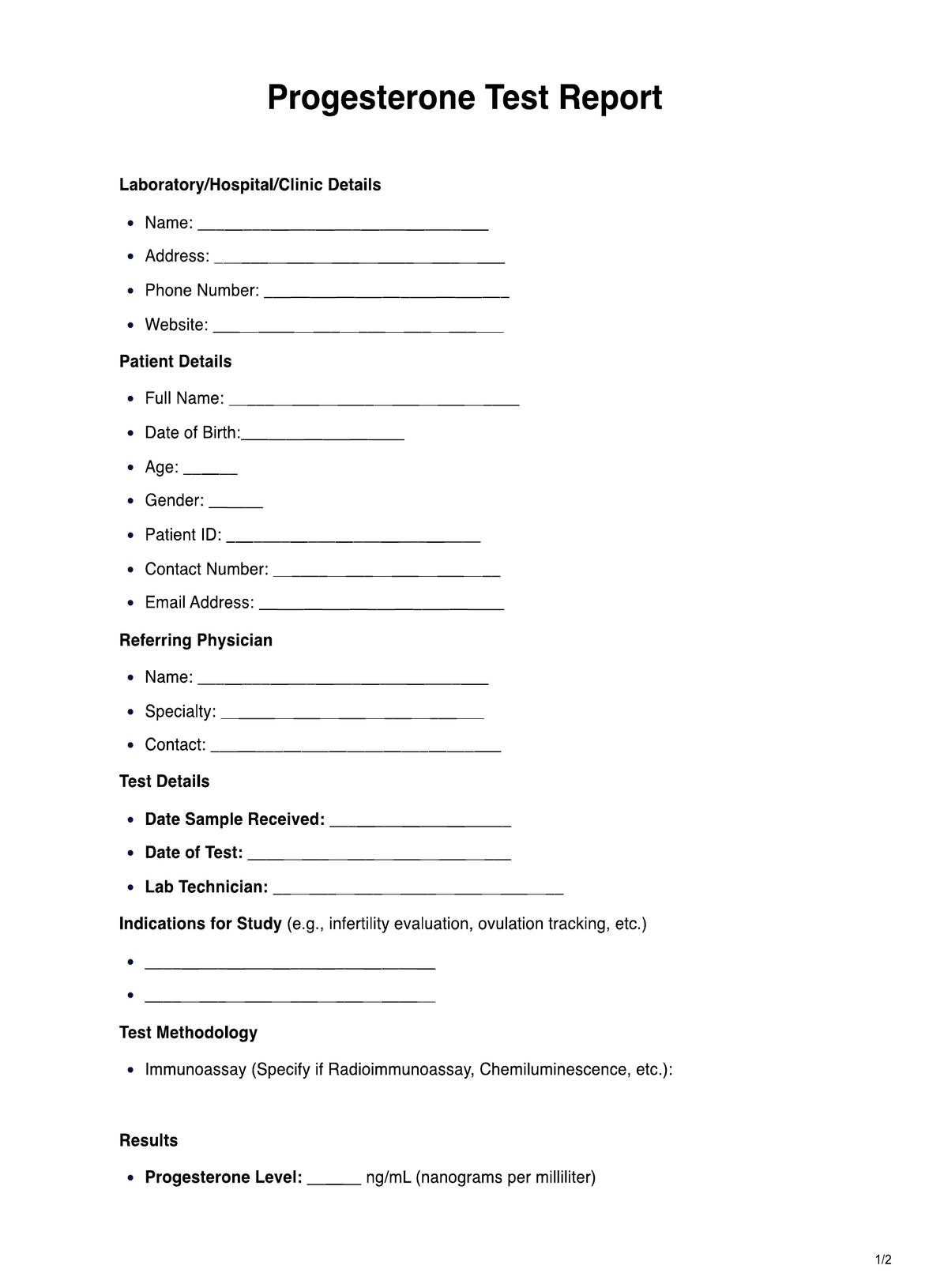Physicians usually request a progesterone test for women experiencing fertility problems or pregnancy complications. Veterinarians may also order this test for breeding dogs.

Understand your fertility with a Progesterone Test. Measure hormone levels, confirm ovulation, and monitor reproductive health. Learn more with Carepatron.
Physicians usually request a progesterone test for women experiencing fertility problems or pregnancy complications. Veterinarians may also order this test for breeding dogs.
Progesterone Tests are primarily used to check if ovulation has occurred or to monitor the effectiveness of fertility treatments.
Progesterone Tests measure the level of progesterone in the blood, which can give insights into a woman's fertility and menstrual health.
EHR and practice management software
*No credit card required
Free
$0/usd
Unlimited clients
Telehealth
1GB of storage
Client portal text
Automated billing and online payments